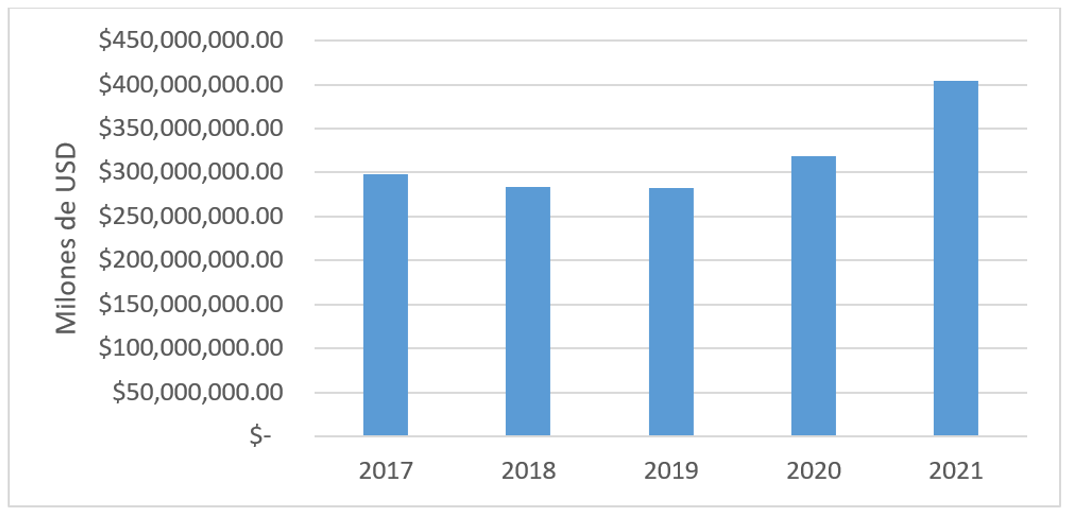Contribution of coffee production to the socioeconomic development of producing regions in Mexico
Main Article Content
Abstract
Coffee cultivation in Mexico has historically been a significant source of income and employment in the producing regions, contributing to the regional development of these areas by financing the construction of infrastructure and public services, improving the quality of life of producers and their families. communities, as well as promoting economic diversification. Despite its importance, Mexico's coffee industry faces significant challenges that threaten its long-term sustainability. The objective of this work was to analyze whether there has indeed been a contribution of coffee production in the regional development of the different producing regions of the country. Statistical information was obtained from the historical databases of the International Coffee Organization (ICO) and the International Trade Center (ITC). The evidence shows that there has been a contribution of coffee production in the socioeconomic development of the producing regions of Mexico and that this, in addition to having been very relevant not only in contributing to the national GDP or in the generation of foreign currency, also It has generated jobs in some of the most socioeconomically marginalized areas of the country. Despite the challenges that producers face, they have managed to adapt to the different changes that have occurred in production due to international price drops, coffee tree diseases and climate change.
Article Details

This work is licensed under a Creative Commons Attribution-NonCommercial 4.0 International License.
Los autores que publican en esta revista están de acuerdo con los siguientes términos:
- Los autores conservan los derechos de autor y garantizan a la revista el derecho de ser la primera publicación del trabajo al igual que licenciado bajo unaCreative Commons Attribution-NonCommercial 4.0 Unported License esto significa que se permite su copia y distribución por cualquier medio, siempre que se mantenga el reconocimiento de sus autores y no se haga uso comercial de las obras. El envio de manuscritos, el procesamiento y la publicación no ofrecen ningún coste a los autores, es totalmente gratis.

This journal is licensed under a Creative Commons Attribution-NonCommercial 4.0 Unported License.
References
Barrera, J., Parra, M., Herrera, O., Jarquín, R., & Pohlan, J. (2004). Plan Estatal de Manejo Agroecológico del Café en Chiapas: Guía hacia una cafeticultura sustentable. México, Chiapas: Comisión para el Desarrollo y Fomento del Café de Chiapas y el Colegio de la Frontera Sur.
Bartra, A. (2006). Virtudes económicas, sociales y ambientales del café certificado. El caso de la coordinadora estatal de productores de café de Oaxaca. En B. Canabal, G. Contreras, & A. León, Estrategias Económicas y Procesos Culturales (pág. 436). México DF: Plaza y Valdés.
CEDRSSA. (2018). Reporte el Café en México diagnóstico y perspectiva. México.
Chango, M. A. (2021). Visor Redalyc - Análisis de la competitividad de las exportaciones de café de Ecuador versus Colombia y Brasil hacia el mercado de USA. X-Pedientes Económicos, 6, 65–82.
CHARMP2. 2019. Technoguide in improving the quality and production of Coffee.
Henderson, T. (2019). La roya y el futuro del café en Chiapas.
Morris, J. (2019). Coffee A Global History. Reaktion Books London, UK.
Organización internacional del Café (OIC). (2019). Vision Zero Fund Strategy 2019-2023, collective action for safe and healthy supply chains.
Organización internacional del Café (OIC). (2020a). Impact Of Covid-19 On The Global Coffee Sector: Survey Of ICO Exporting Members. Coffee Break Series N°3 June 2020.
Organización Internacional del Café (OIC). (2020b). Coffee Development Report (2020). The value of coffee – Sustainability, Inclusiveness and Resilience of the Coffee Global Value Chain.
Pendergrast, M. (2010). Uncommon Grounds: The history of Coffee and how it transformed our world. Basic Books. New York.
Pérez, P. (2018). Las políticas públicas cafetaleras en México: un análisis histórico.
Ruiz. P., Conde, C., Gómez, J., & Monterroso, A. (2021). Projections of local knowledge-based adaptation strategies of Mexican Coffee Farmers. Climate 9: 60.
Samper, L., Giovannucci, D. & Vieira, L. (2017). The powerful role of intangibles in the coffee value chain. Economic Research Working Paper No. 39. World Intellectual Property Organization.
Secretaría de Agricultura y Desarrollo Rural (SADER) (2020a). El café una producción en manos sabias.
Secretaría de Agricultura y Desarrollo Rural (SADER) (2020b). Segundo Informe de Labores de la Secretaría de Agricultura y Desarrollo Rural.
Secretaría de Agricultura, Ganadería, Desarrollo Rural, Pesca y Alimentación (SAGARPA). (2017). Café Mexicano Planeación agrícola nacional 2017-2030.
Secretaría de Agricultura, Ganadería, Desarrollo Rural, Pesca y Alimentación (SAGARPA). (2019). Importaciones y exportaciones de café.
Servicio de Información Agroalimentaria y Pesquera (SIAP). (2018). Uso De Tecnología Y Servicios En El Campo Cuadros Tabulares.
